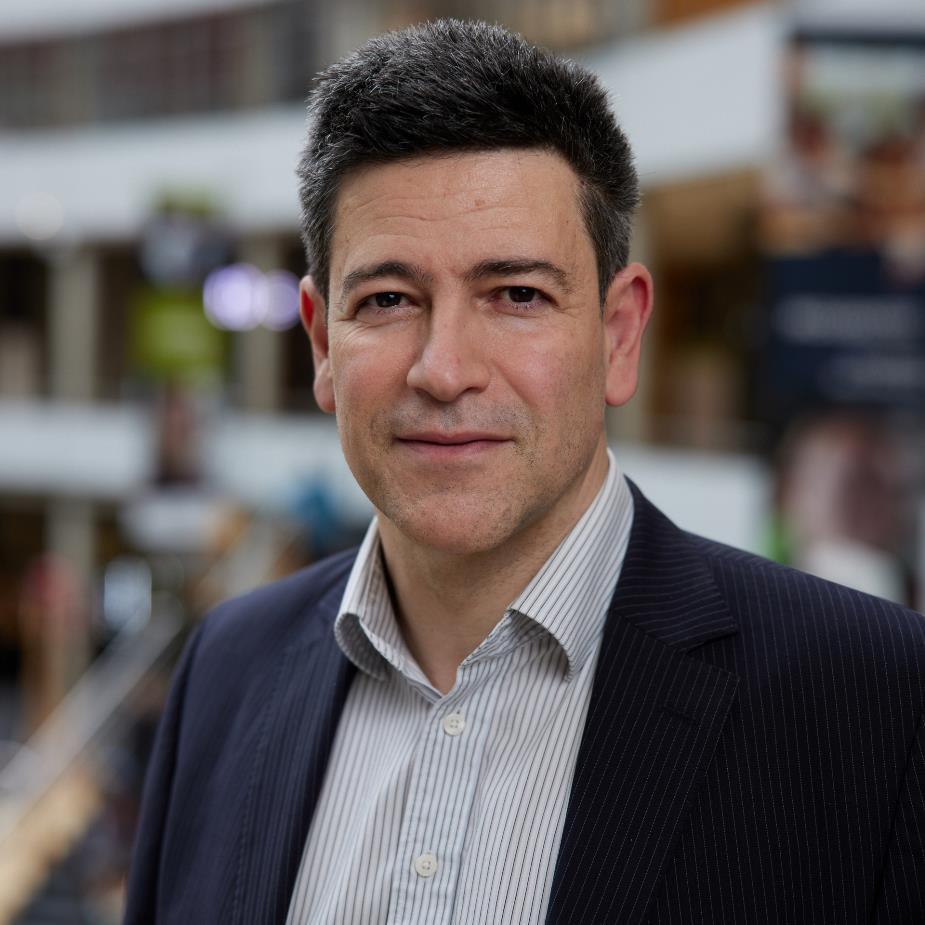UNESCO Chair in AI & Data Science at The Hague University of Applied Sciences
28 February 2022
'Artificial Intelligence and Data Science for Society'. This is the title of the Chair recently awarded by UNESCO to The Hague University of Applied Sciences. Lampros Stergioulas is the professor who will fill this Chair...

'Artificial Intelligence and Data Science for Society'. This is the title of the Chair recently awarded by UNESCO to The Hague University of Applied Sciences. Lampros Stergioulas is the professor who will fill this Chair. As a Data Science professor, he has longtime experience in conducting practice-based research and developing education in the field of AI and Data Science on major social themes such as health, welfare and sustainability. The Chair will enable THUAS to make an even greater contribution to a liveable and sustainable future, both locally and internationally.
Elisabeth Minnemann, Chair of the Executive Board of The Hague University of Applied Sciences, is proud of the UNESCO Chair: "We are joining a global network of leading universities, universities of applied sciences and research institutes. Together, we possess a wealth of scientific knowledge on major issues facing society, that we generously exchange with each other. As a UNESCO University of Applied Sciences, we contribute to the sustainable development goals defined in UNESCO's strategic agenda. Technological developments and sustainable development goals go hand in hand with AI & Data Science. These topics and their correlations are becoming increasingly central to our research and education. This Chair is an important next step. With Lampros Stergioulas at the helm, it will be a guaranteed success."
A real honour
Lampros Stergioulas is a professor in Data Science at THUAS. The research group is part of the Health Innovation Centre of Expertise, which uses social and technological innovations to promote the health of citizens. Stergioulas' ambition? To establish a world-class research and education programme to develop human-centred and practice-based AI and Data Science. In addition to the UNESCO network, THUAS brings together local and international strategic partners from its own knowledge network, industry and government. Stergioulas is honoured: "I am looking forward to exploring and developing innovative AI and data technology as Chair. Together with partners, colleagues and students, I will work on solutions that will impact major issues that concern us all."
AI and Data Science in practice
AI and Data Science help you to discover patterns in huge amounts of diverse data. This allows you to create models and predictions that help solve social issues. Stergioulas: "A concrete example of this is the research we did with partners abroad on vaccinations. We used an app to collect a variety of data on why people didn't get vaccinated and how they received information about vaccinations. The findings were used to create a public awareness campaign."
A good ‘AI society’
AI and Data Science are going to bring a lot of progress to all facets of our society. This also involves an important ethical aspect. Stergioulas: "All of society must benefit from this progress. Emerging AI technologies must benefit our societies and humanity as a whole. That is why we participate in the international development of ethical frameworks for AI. Our goal is to create a good ‘AI society’ together. That is also a priority of UNESCO."
Introduction of the Chair
The Chair has been awarded to The Hague University of Applied Sciences for four years. This period may be extended by UNESCO for an additional four year period each time. Lampros Stergioulas is scheduled to give his official inauguration speech as Chair this year. He will introduce the Chair and further explore the content of the research and education programme.
Lectures
The world-renowned expert in optimization and data modeling, Prof. Vassiliadis, will give 2 lectures on optimization, AI and dynamic systems at De Haagse on 7 and 10 March as part of the Unesco Chair 'Artificial Intelligence and Data Science for Society'. For more information, please visit our website.